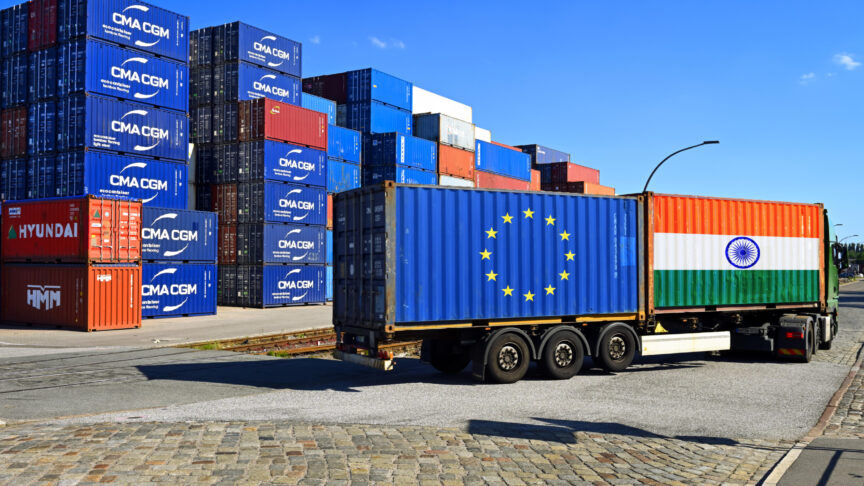How Brussels could get crisis management right this time
The EU got it wrong in the financial crisis – and paid a heavy price. But this time could be different.
Back in 2008, the United States – the champion of financial liberalisation, deregulation, and state shrinkage – swiftly and decisively stepped in to bail out banks, insurers, and carmakers threatened with collapse. Meanwhile, EU member states reacted separately, became increasingly divided, and blamed one another for wasting time and achieving poor results. As a consequence, many member states suffered from either a deep economic crisis or a crisis of legitimacy – sometimes both – with millions of citizens turning their backs on the European project by supporting anti-EU forces.
In theory, Europeans have learned from their past mistakes – so, this time will be different. But will it?
Firstly, the coronavirus crisis is different. The 2008-2009 crisis was financial in origin, and its most threatening manifestation was in the feedback loop it created between private banks and sovereign debt, which led to bailout programmes for five eurozone states and massive intervention by the European Central Bank (ECB). This time, ECB President Christine Lagarde made a mistake in saying that she did not believe the ECB had to stop a rise in German and Italian borrowing costs. Yet, fortunately, she quickly changed course, approving a €750bn debt purchase programme and promising that the ECB would do “everything necessary” to deal with the crisis. This replicates the promise to do “whatever it takes” made by her predecessor, Mario Draghi, in 2012, with the aim of containing spreads and controlling sovereign and private debt – a move that effectively saved the euro. So, this time has already been different in that the ECB, rather than taking four years to react, has taken just four days to suppress its impulse to stand aside.
What about the fiscal side, which was the other weak spot of the policies adopted in the previous crisis? Here, again, the European Union has been quicker to react than in the previous crisis – as seen on 20 March, when European Commission President Ursula von der Leyen announced the temporary removal of the deficit ceiling for the eurozone. Yet there is still much to do. And, judging by the divisiveness of past discussions on Eurobonds, it’s not going to be easy.
Many people are using war analogies to describe events in France, Italy, and Spain, but the impact of the coronavirus might be more severe than that
Many people are using war analogies to describe events in France, Italy, and Spain, but the impact of the coronavirus might be more severe than that. While a war requires the mobilisation of all national resources to increase production – by, for instance, redesigning car factories to manufacture armoured vehicles – this crisis is bringing production to a sudden stop in all but essential sectors, whose activity will increase. In other words, countries are grounding planes while closing car factories, hotels, and shops – in what is a self-induced recession of unprecedented proportions.
So, is the EU ready to act fiscally? Not yet, but the debate has started. Economists are putting forward proposals based on the idea of Eurobonds, which circulated during previous crises, only to be rejected by Germany and other fiscally conservative countries. This time, however, there are signs of flexibility from Germany and the Netherlands.
Two factors seem to be preventing a quick response. One is that the coronavirus first hit countries with a bad fiscal reputation, high public deficits, and relatively little fiscal space – Italy, Spain, and France. This suggests that it will be some time before arguments about the need for fiscal expansion take hold in all member states.
The other factor is EU countries’ slowness in learning from one another. As a result, they are sleepwalking into the emergency unprepared, despite having witnessed the experiences of China, then other Asian countries, and now Italy and Spain. National reactions to the crisis are understandable: healthcare systems are domestic competencies and, in this sector, the EU’s role is limited to coordinating initiatives and providing backup to member states. Nationalistic reactions, however, are foolish – because all EU member states will face very similar health and economic crises.
For now, the shock is asymmetric. This means that the EU is unlikely to fully step in with aid in the form of new fiscal instruments, policies, and rules until after every member state has been through the same experience. Just as European leaders have been slow to understand the severity of the health crisis, they may be sluggish in establishing a consensus on the need to turn all the EU’s budget and policy instruments to averting economic disaster. But, even if they are late to do so, they will ultimately realise that it’s the survival of not just the EU at stake but also that of their economies and societies. So, they will find that they must act together. This may or may not be a war – experts, as usual, disagree on the matter – but for a generation that has not known one, it certainly feels like a war. And the EU has the best answer to it.
The European Council on Foreign Relations does not take collective positions. ECFR publications only represent the views of their individual authors.


